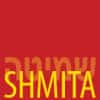Dear All, Ahead of this shabbat’s Torah portion of Behar Sinai (which begins with one of the explications of shmita in the Torah) I want to give you a flavor of some of what is happening in relation to shmita around the Jewish world – some of the ideas that people are coming up with. (Last week’s email gave the background on why I believe that shmita is such a remarkable topic. Click here if you didn’t have a chance to see it.) Here are a few aspects of shmita to think about. This list is intended to whet your appetite. We hope that you’ll treat this week’s parsha as a reminder to start planning in relation to shmita for the coming year. Shmita & Israel Shmita is many things, and it is unspooling into many more, but it begins with a sense of the sanctity of the land of Israel, and of the people who are fed by its bounty. So: Check out a sweet – and challenging – 2-minute video by Teva Ivri, led by Einat Kramer and Rav Michael Melchior. This leads on to the “Israeli Shmita Declaration,” catalyzed by Einat, and signed on to by a […]





